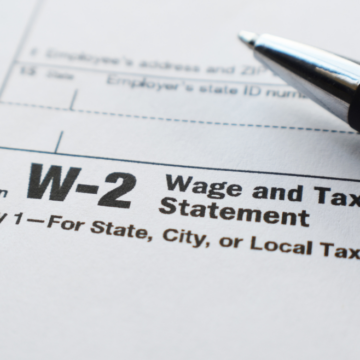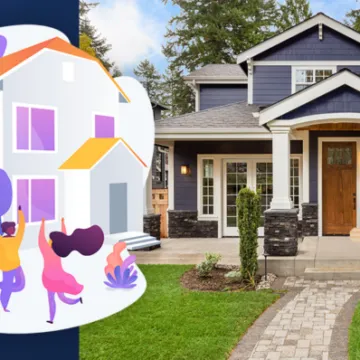Many of us are in fast need of mortgage assistance in this time of crisis.
Facing financial hardships can cause us to fall behind on monthly mortgage payments.
Depending on how severe the financial situation, it is overwhelming and sometimes confusing to understand the available options that could help us keep our home.
Featuring Kristen Holt, President & CEO
Some helpful guidance on seeking mortgage assistance and contacting your mortgage service provider.
Mortgage Assistance Resources
See the following mortgage assistance resources to help you take action.
1. Contact Your Mortgage Service Provider
- If you still have the ability to pay your mortgage, continue to do so for as long as possible.
- Be sure to open any mail from your mortgage servicer and respond quickly so that they are aware of your situation
- If you no longer have the ability to pay your full monthly mortgage payment, call your mortgage servicer immediately.
- As you contact your provider, be sure to understand the type of loan you have. For instance, is your mortgage a federally backed through HUD, USDA, FHA, VA, Fannie or Freddie? Knowing this information will help you wade through the process.
- For people with federally backed mortgages through HUD, know that GreenPath counselors are certified to offer U.S. Department of Housing and Urban Development housing counseling.
Visit these websites to see if your loan is owned by Fannie Mae or Freddie Mac:
Remember, your mortgage servicer may be getting many calls from homeowners right now, so it may take extra time to get through.
2. Be Wary of Quick Fixes
- If it sounds too good to be true, it probably is. Watch out for any company that offers a “quick fix.” You should never have to pay someone to “help” you obtain forbearance for your mortgage.
- No organization can promise or guarantee modification of a loan or prevention of foreclosure other than your servicer.
- If you are or believe you may be the victim of a scam, please call us at 888-995-HOPE™ (4673) and report it. Or file a complaint here on the ReportFraud website.
3. Know the Options
- Read about foreclosure prevention options including repayment plans, forbearance, loan modifications, and refinancing.
- Looking deeper, forbearance is an option that pauses or reduces your monthly payments for a period of time.
- Know that forbearance does not mean loan forgiveness. Depending on your situation, forbearance is generally the best option to meet the terms of your mortgage, but is temporary. You will still need to consider paying property taxes, escrow or other housing-related fees like Homeowner Association dues for example.
We also encourage people to understand the full details of the forbearance option, which might involve balloon payments or other payments at the end of the forbearance period.
Many mortgage lenders have offered these options in some capacity prior to the coronavirus outbreak. Their policies may now be more flexible for those facing financial hardship.
Contacting your lender before the foreclosure process begins will give you the most options in terms of keeping your home.
4. Get Trusted Guidance
- See this resource from the Consumer Financial Protection Bureau as a trusted resource. If you are unsure what your next step should be, contact the certified housing counselors at GreenPath for free foreclosure prevention counseling.
- We can talk to your lender to explore options and even help you apply for specific programs.
5. Get Your “Steps to Take Now” Guide
To help cope with new financial challenges in this time of crisis, check out our guide that provides:
- Actionable steps to take now to protect your home
- Links to useful resources
- A summary of the options mortgage servicers can offer depending on the severity of your situation
You can also call the HOPE Hotline:
GreenPath Financial Service
Free Debt Counseling
Take control of your finances, get tailored guidance and a hassle-free budgeting experience. GreenPath offers personalized advice on how to manage your money.










